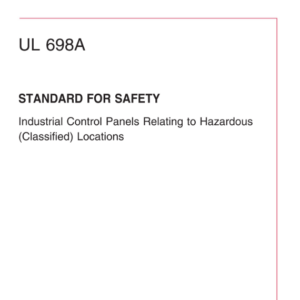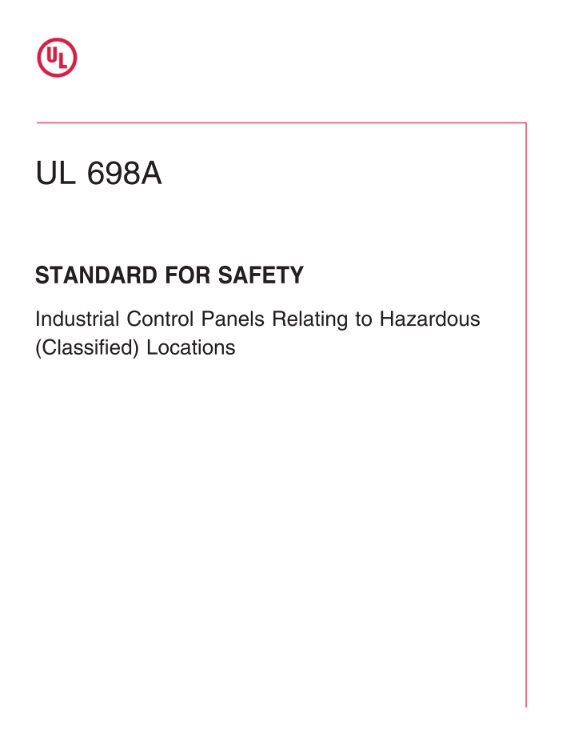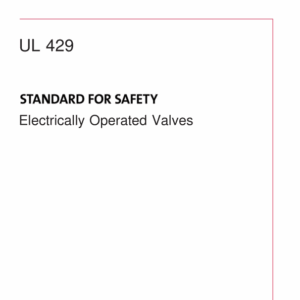Description
These requirements cover industrial control panels intended for general industrial installation and use in unclassified locations with intrinsically safe circuit extensions into the following hazardous (classified) locations in accordance with the National Electrical Code (NEC), NFPA 70:
a) Class I, Division 1;
b) Class I, Zone 0 and Zone 1 AEx;
c) Class II, Division 1;
d) Class III, Division 1; and
e) Zone 20 and Zone 21 AEx.
The industrial control panels covered by these requirements may include:
a) electrical (entity) parameters, only if referenced on the control drawing for barriers that are part of the panel;
b) external interconnection to non-specific simple apparatus, identified only by generic type and not by manufacturer or model number, but only if referenced in this manner on the control drawing for barriers that are part of the panel;
c) external interconnection to specific simple apparatus and specific intrinsically safe apparatus, identified by manufacturer and model number, but only if referenced in this manner on either the control drawing for barriers that are part of the panel or on the panel control drawing;
d) fieldbus intrinsically safe concept (FISCO) applications, if referenced on the control drawing for barriers that are part of the panel; and.
e) internal interconnection of multiple barriers, only if referenced on the control drawing for the barriers that are part of the panel.
The industrial control panels covered by these requirements do not include electrostatic devices, circuits or systems, gas or vapor analysis equipment, or equipment having a process line brought into the panel.
The industrial control panels covered by these requirements are assemblies consisting of components such as motor controllers, overload relays, fused disconnect switches, and/or circuit breakers and related control devices such as pushbutton stations, selector switches, pilot lights, timers, switches, control relays and the like with associated wiring terminals. In all cases, the enclosure is provided as part of the assembly
These requirements cover equipment for use under the following atmospheric conditions:
a) An ambient temperature not exceeding 40°C (104°F);
b) An oxygen concentration not greater than 21 percent by volume; and
c) A nominal barometric pressure of one atmosphere.




